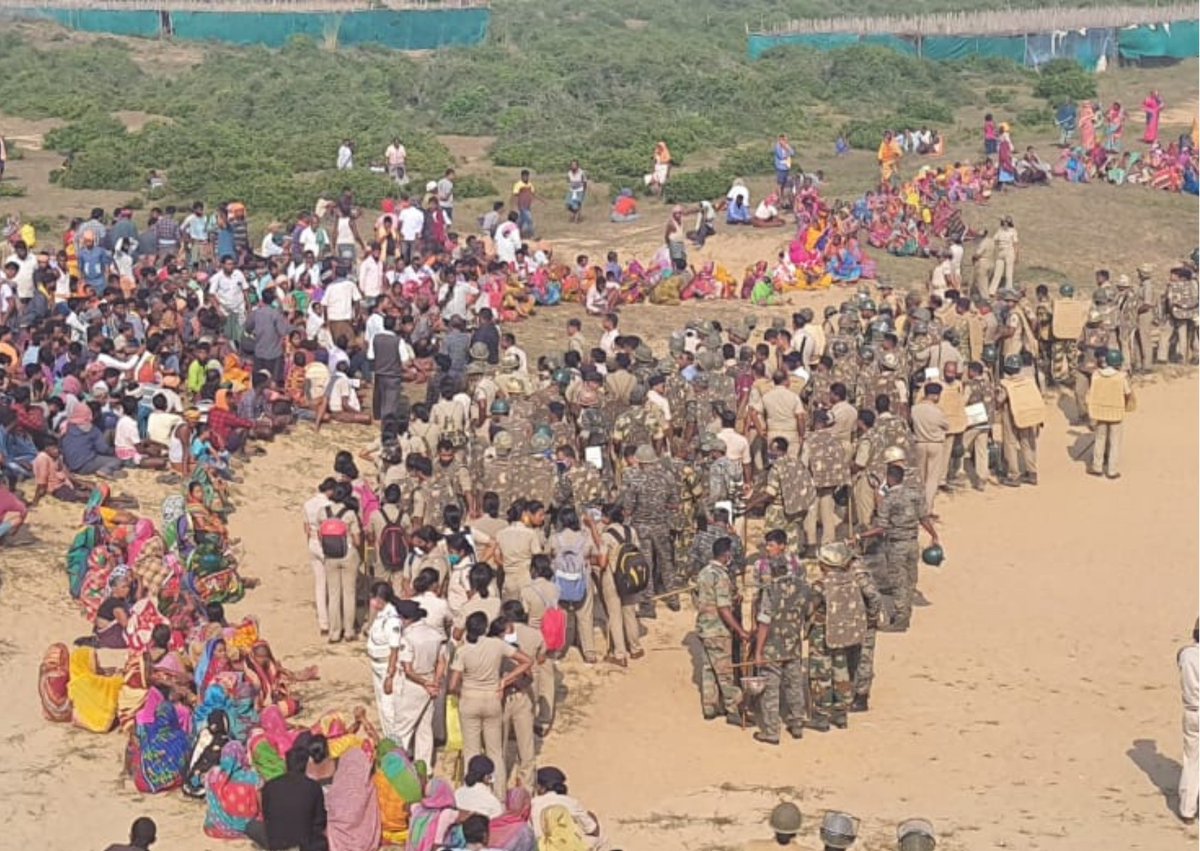
On Jan 14, protests against a proposed steel plant in Odisha turned violent. About 1,000 protestors were lathicharged in #Dhinkia village, injuring at least 30. But this isn’t the first time they have faced police action. A thread on what led to the violent incident 1/12 

Village residents who had gathered to inspect their betel leaf plantations – their main source of livelihood – were stopped by the police. A steel plant by Jindal Steel Works (JSW) is proposed where these plantations currently stand 2/12
The police have reportedly blocked public access to the plantations since Dec 2021 and when people protested, the police allegedly resorted to force, beating up even women and children. They arrested members and the leader of the Jindal Pratirodh Sangram Samiti (JPSS) 3/12 

Dhinkia residents have been opposing the #JSWsteel plant since it received forest clearance in May 2011 and are determined to not give up their land for any project. We have tracked the conflict in detail: landconflictwatch.org/conflicts/posc… 4/12
A public hearing held on Dec 20, 2019 was called a ‘farce’ as many of the project-affected village residents did not participate in the meeting. The Dhinkia palli sabha (village council) also passed a resolution against the project that year 5/12 

The project, however, is yet to receive an environmental clearance from the @moefcc. The JPSS claims that the Odisha government has gone ahead without the clearance to “cut trees, destroy plantations and acquire land” 6/12
Meanwhile, individual and community forest rights claims filed by the people have been pending for over 12 years, despite the govt setting up three committees to look into the implementation of forest rights under the @ForestRightsAct 7/12
Multiple human rights violations have been reported as well. In the past, the police have arrested protesters on fake charges and reportedly resorted to violence 3-4 times since Dec 2021. Many people have been forced into hiding to prevent these arrests 8/12 

The JPSS has reached out to civil society groups and political parties for support. It has also petitioned the Odisha Human Rights Commission to visit the site and conduct a high-level inquiry into the #humanrights violations 9/12 

On Jan 16, representatives of civil society organisations wrote a letter to CM @Naveen_Odisha, highlighting the ‘ongoing crackdown’ and calling for ‘urgent intervention’ 10/12 

The JSW project isn’t the first struggle of the Dhinkia residents. Earlier, they had strongly objected to the steel project by South Korean company, POSCO, which required 4,000 acres of land. Fearing displacement and loss of livelihood, the people opposed it for 12 years 11/12
Following the stiff resistance and failing to get an environmental clearance, POSCO was forced to withdraw the project in 2016. Will JSW’s steel plant project meet the same fate? 12/12
• • •
Missing some Tweet in this thread? You can try to
force a refresh




